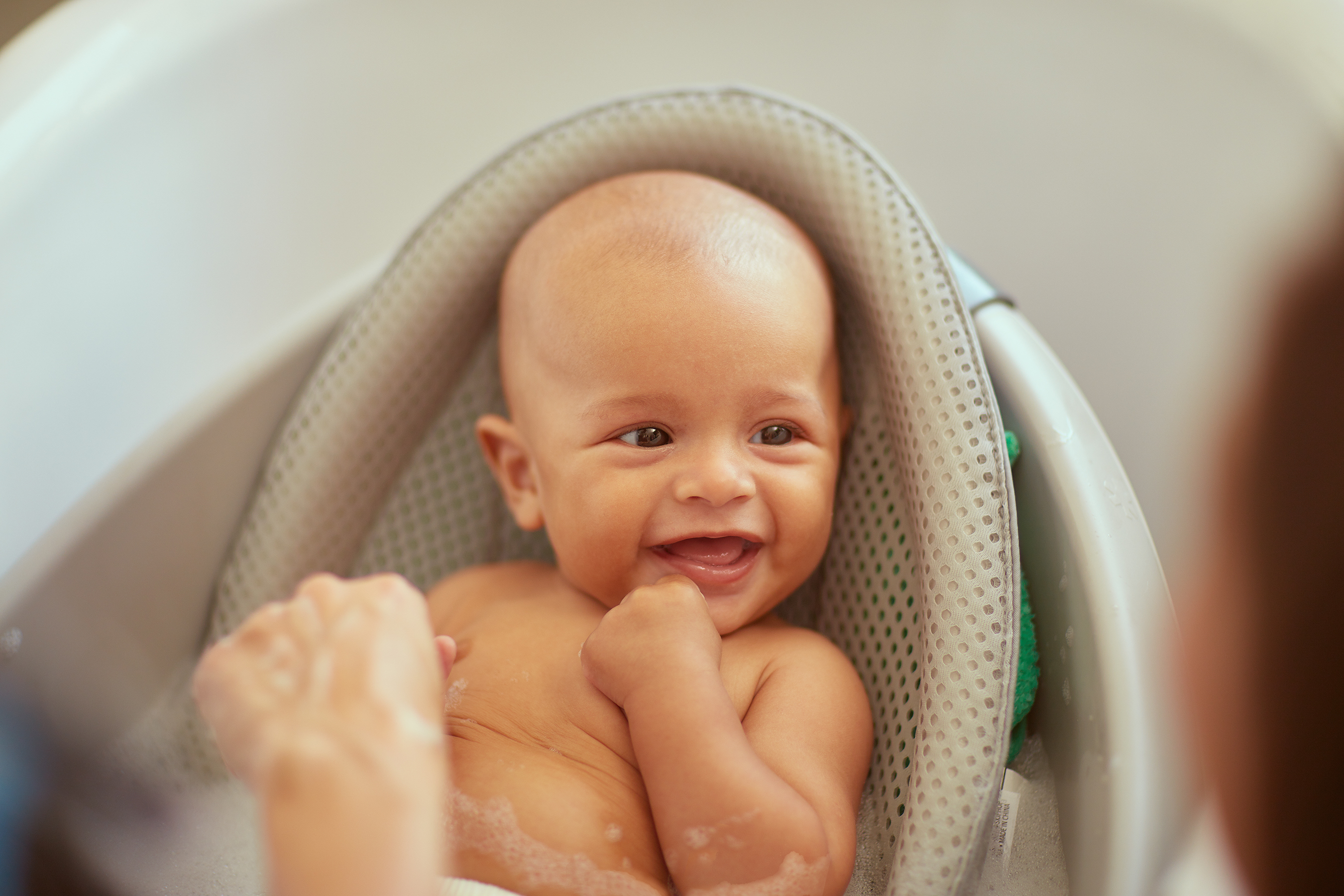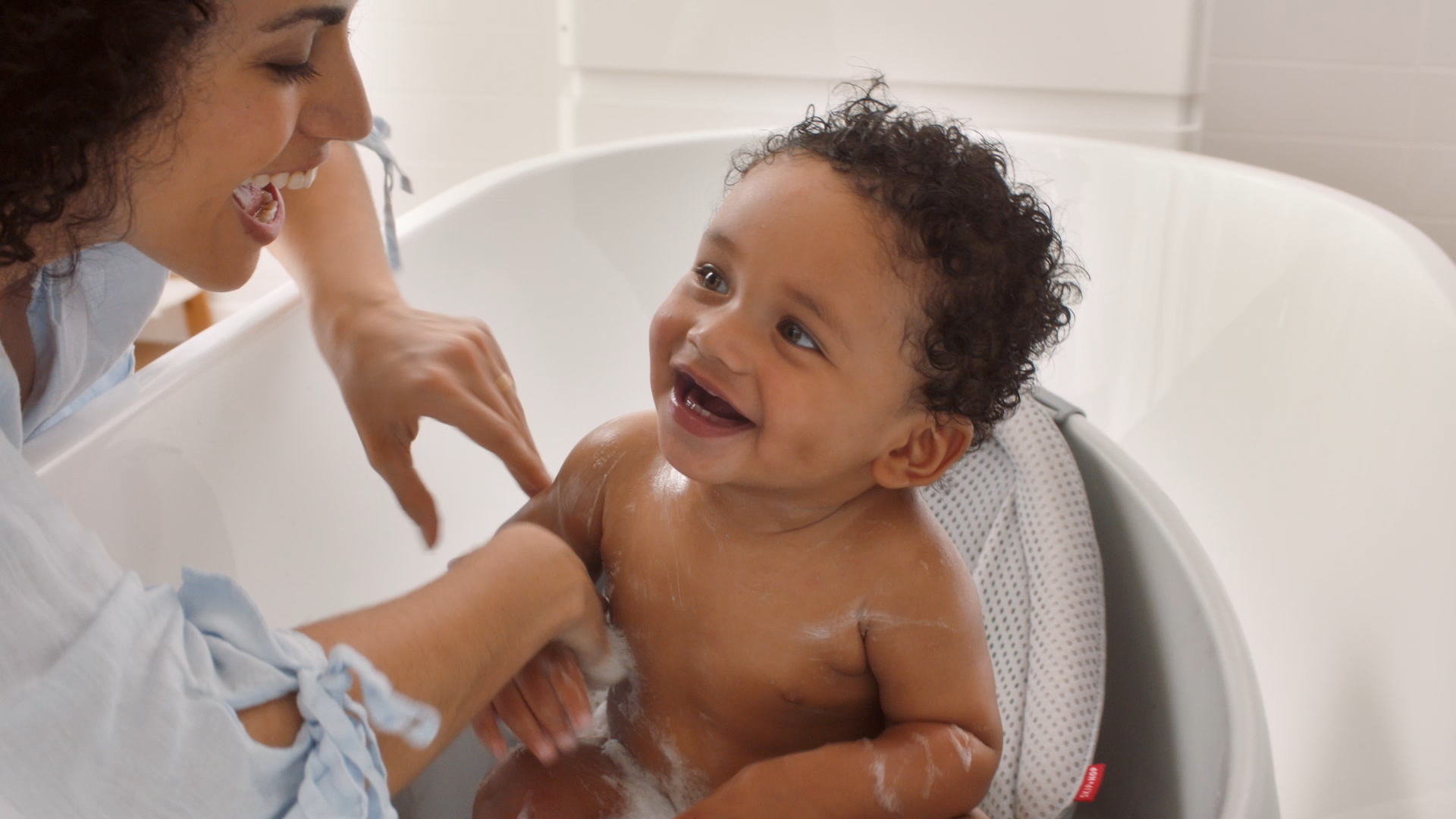Welcoming a newborn can be an exciting and magical time. But we understand caring for them can sometimes feel overwhelming – especially when it comes to looking after their skin. Baby skin differs significantly from adult skin and requires delicate care and the use of specially formulated products.
In this guide, we’ll look at how to build a daily skincare routine around your baby’s needs, as they grow from a newborn to a toddler. We’ll also cover some of the common skin complaints babies are prone to and what you can do to help soothe and protect their skin.
In this guide:
Newborn skin care
Newborn skin is very thin and can easily be damaged. This is because it takes a few weeks for their skin to mature and develop its own natural protective barrier. Here’s what you can do to help protect it:

Natural skin care for newborns
When they’re born, your baby will be coated in something called vernix. This is a white, sticky substance that acts as a natural moisturiser and protects their skin against infection. This should be left on the skin to absorb naturally.
Washing and bathing your newborn
For the first month, it’s best to bathe your newborn with warm water only. When bathing, it’s also important to make sure the room is warm, so your little one doesn’t feel the cold when you’ve finished washing them.
You should also resist the urge to bathe them frequently, as too many baths can remove the natural oils in their skin. This can leave baby’s skin prone to dryness and can aggravate eczema. You don’t need to bathe your baby daily. If you prefer, you can just wash their face, hands, and bottom with warm water and cotton wool in between baths. This is called the ‘topping and tailing’ method.
Skincare products for newborns
You should try to avoid using skin cleansing and moisturising products on your newborn for the first few weeks while their skin is still developing naturally. It’s also advised to steer clear from baby wipes until your baby is at least two weeks old. When you start using wipes, choose an unscented and alcohol-free wipe like AVEENO® Baby Daily Care Baby Wipes to minimise the risk of irritating their skin.
Sun safety for newborns
A baby’s skin doesn’t contain much melanin, which is the pigment that provides protection from the sun. Because their skin is so sensitive, and doesn’t benefit from this extra protection, it’s advised that you keep newborn babies away from direct sunlight.
Baby skin care
As your baby’s skin matures and develops, their skincare routine can change. Here’s some guidance on how to look after your little one’s skin:
Washing and bathing your baby
You don’t need to bathe your baby every day and can instead use the topping and tailing method to keep them clean2. It’s also best to avoid bathing your baby straight after a feed, or when they’re tired or hungry, to ensure they’re relaxed, and you won’t be interrupted.
Skincare products for babies
Once your baby is a few weeks old, you can begin to incorporate skincare products into their bathing routine. However, for premature babies, these products should be avoided for around six to eight weeks after birth, as their skin’s natural protective barrier can take longer to mature.
It’s also important to use products that are specially formulated for baby skin. For example, some products can disrupt the pH levels in your newborn’s skin. For this reason, it’s best to introduce baby products that have a neutral pH. You should also watch out for fragrances, as these could cause reactions and dry out your baby’s skin.
Skin care products suitable for babies older than one month include:
- Emollient-rich baby body washes for bath time
- Gentle cleansers for the skin and scalp like Aveeno Baby Hair & Body Wash
- Emollients for baby skin to keep it gently hydrated and protected – otherwise known as moisturisers.

Sun safety for babies
Babies under six months should be kept away from direct sunlight. You should also avoid the use of sun cream during this time, unless your doctor advises you to do so. Instead, stay inside during the hottest parts of the day (between 11am and 3pm) and attach a parasol or sunshade to their pushchair to keep their skin protected from sun exposure when out and about.
Toddler skin care
Caring for your little one’s skin is just as important when they’re a toddler. Now that they’re growing up and becoming more mobile and active, their skin care routine should reflect this.
How to help manage your baby’s dry skin, rashes, and other complaints
As infant skin is still developing, it can be susceptible to rashes and irritation. While this is completely normal and often nothing to worry about, here are some suggestions on how you can help manage some of these common skin complaints:
